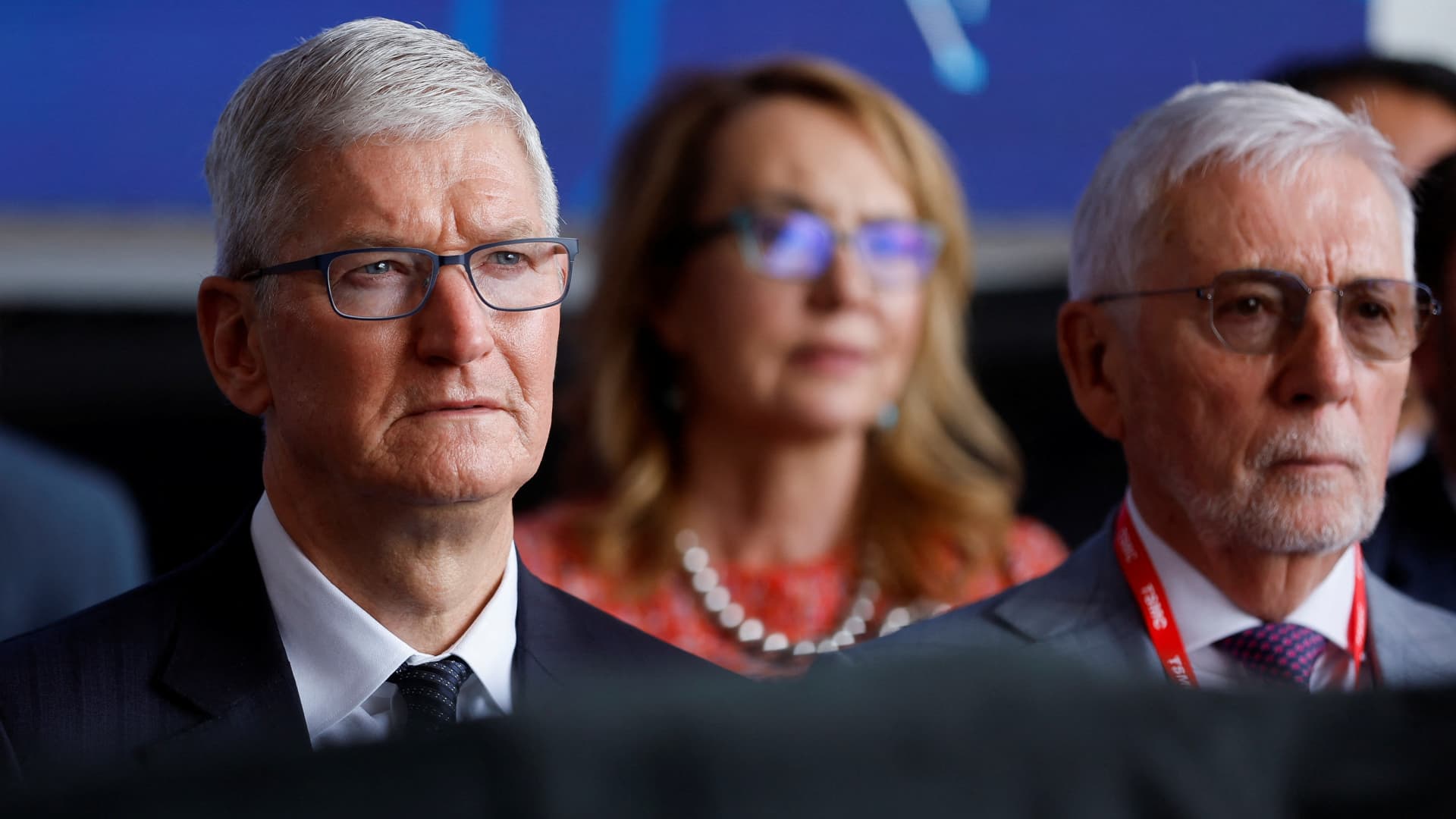Eric
Mama's lil stinker
- Joined
- Aug 10, 2020
- Posts
- 15,347
- Solutions
- 18
- Main Camera
- Sony

Tim Cook says Apple will use chips built in the U.S. at Arizona factory
Apple CEO Tim Cook spoke at an event in Arizona on Tuesday where he confirmed Apple will buy chips built in the U.S.
- Apple CEO Tim Cook confirmed that Apple will buy U.S.-made microchips at an event in Arizona on Tuesday, where President Joe Biden also spoke.
- The chip factories will be owned and operated by Taiwan Semiconductor Manufacturing Company, the biggest foundry company with over half of the global market share.
- “And now, thanks to the hard work of so many people, these chips can be proudly stamped Made in America,” Cook said. “This is an incredibly significant moment.”
Apple CEO Tim Cook confirmed that Apple will buy U.S.-made microchips at an event in Arizona on Tuesday, where President Joe Biden also spoke.
Cook said Apple would buy processors made in a new Arizona factory, according to a video from the event.
“And now, thanks to the hard work of so many people, these chips can be proudly stamped Made in America,” Cook said. “This is an incredibly significant moment.”
The chip factories will be owned and operated by Taiwan Semiconductor Manufacturing Company, the biggest foundry company with over half of the global market share. TSMC produces the most advanced processors, including the chips in the latest iPhones, iPads and Macs.
The plants will be capable of manufacturing the 4-nanometer and 3-nanometer chips that are used for advanced processors such as Apple’s A-series and M-series and Nvidia’s graphics processors.
“Today is only the beginning,” Cook said. “Today we’re combining TSMC’s expertise with the unrivaled ingenuity of American workers. We are investing in a stronger brighter future, we are planting our seed in the Arizona desert. And at Apple, we are proud to help nurture its growth.”
“Apple had to buy all the advanced chips from overseas, now they’re going to bring more of their supply chain home,” Biden said. “It could be a game-changer.”
Cook tweeted on Tuesday that Apple would be the “site’s largest customer.”

